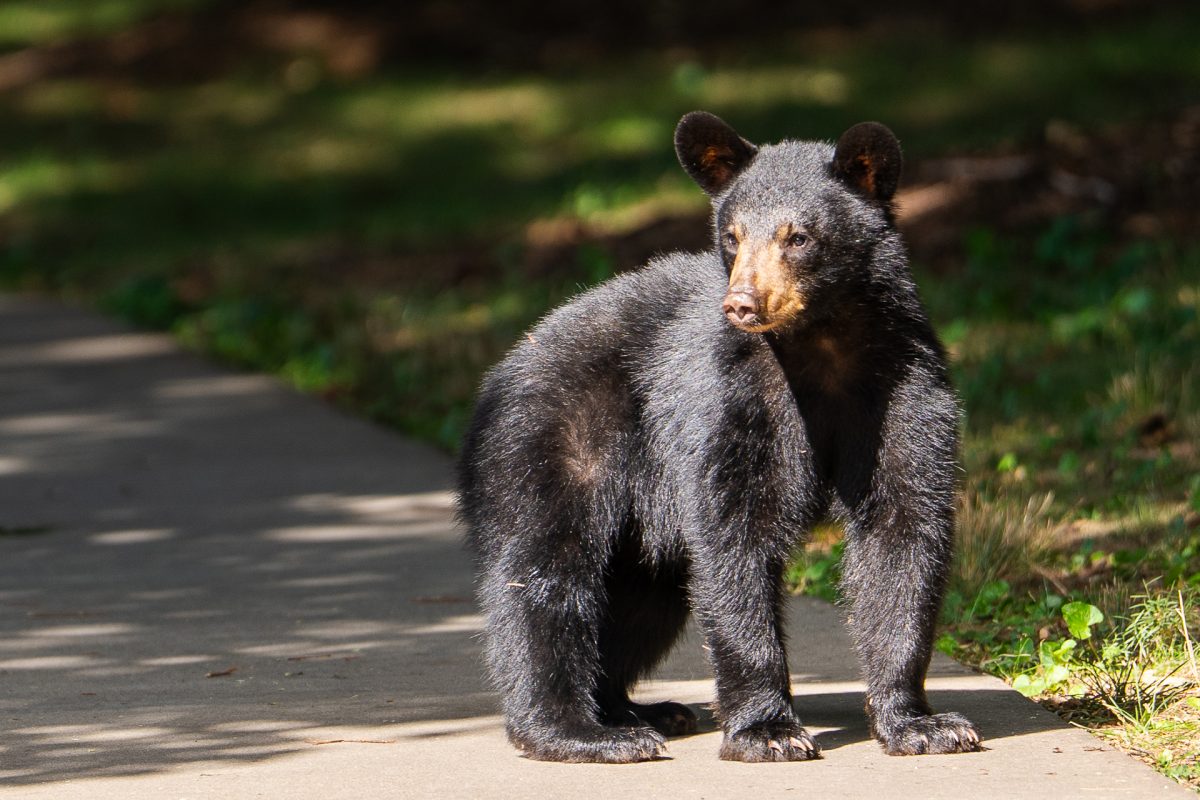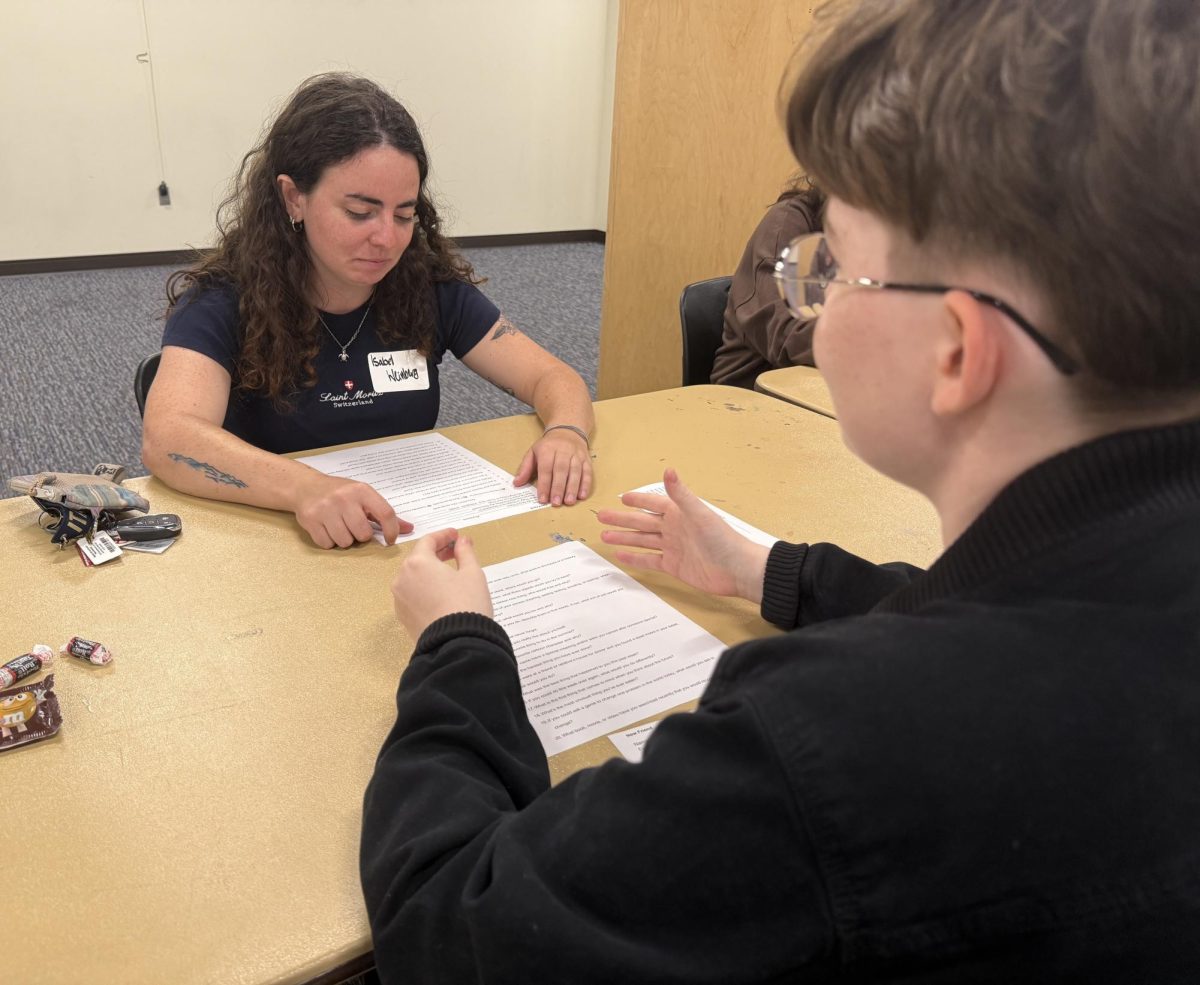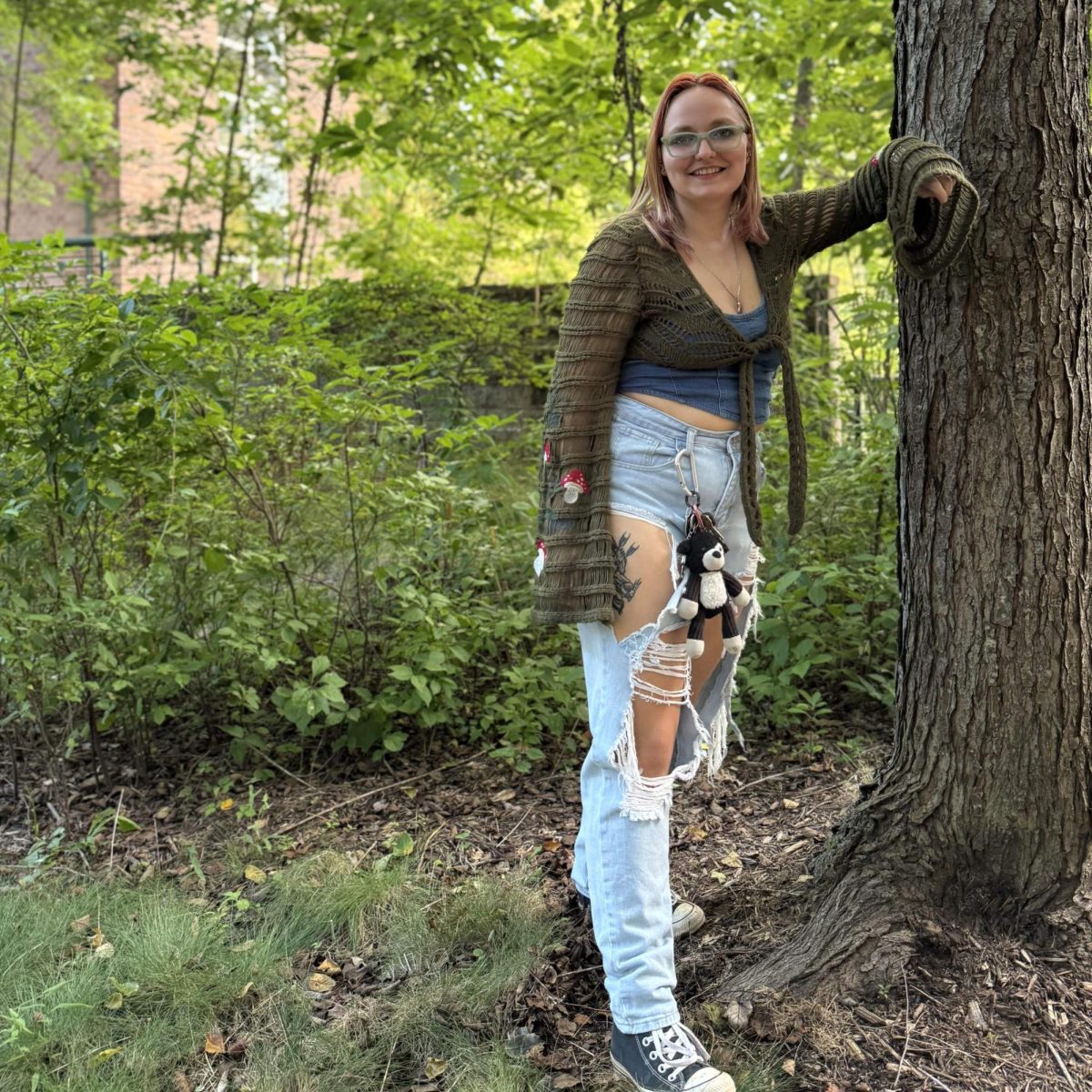Madison Clark
Contributor

Danielle and Blaize McComas forage for fungi around their property.
Spring brings blooms, rainy weather and foraging tours taking place every Saturday afternoon in Asheville until May 8.
“The main reason to forage is ultimately what I would call a spiritual or religious experience,” said Alan Muskat, CEO of No Taste Like Home. “To feel at home is to feel provided for. If you want to think of it as God’s food rather than human’s then you can. You can think of it as mother Earth but either way, there’s a sense of being being taken care of.”
No Taste Like Home partners with Asheville restaurants who prepare appetizers with the food foraged on the tours. John Fleer, one of James Beard’s “Rising Stars of the 21st Century,” and owner and chef of Rhubarb, The Rhu and Benne on Eagle partners with No Taste Like Home to prepare these appetizers.
“They were bringing in some daylily shoots and some wild onion,” Fleer said. “They were grilled and roasted in our woodfire oven. This time of year there’s a lot of greens like chickweed, bitter herb and some tiny wild onions. We did all those together in a dish that is very appropriate for this time of year, it’s called green gumbo that was made famous in a restaurant in New Orleans called Dooky Chase.”
Kyle McKnight, proprietor and managing partner at Your Place at Foothills West, said foraging shouldn’t be limited to food.
“Everybody forages in their day to day life, whether it’s for food, knowledge, love, companionship, skills or money,” McKnight said. “I don’t think the word ‘foraging’ should just be defined as food.”
Muskat’s foraging career has evolved throughout the years from foraging in Miami to Princeton.
“I grew up foraging with my family in Miami without woods,” Muskat said. “We would gather shells on the beach and things like mushroom hunting didn’t start till after college. I studied Daoism, which is about getting back to nature, and some early Marxism, which is about natural fulfillment also. I hiked for the first time and learned about natural and organic food. When you put all of that together you get an interest in foraging.”
North Carolina possesses various regulations for using foraged foods in food service.
“When you say you’re buying the most prominent item that chefs or cooks or restaurateurs will purchase is fungus mushrooms,” McKnight said. “I believe throughout the whole state of North Carolina they have to come from a reputable source and they have to come from somebody that has passed the mushroom foraging test and has a license.”
Fleer said the summer season brings a whole new array of items on his menu.
“This time of year is about to be mostly defined by greens, whether it’s nettles or wild mustard or wild rapini, all of those sorts of things we’ll see steadily for the next couple of months,” Fleer said. “Then comes summertime, which is the time for mostly mushrooms. Those are easy and tasty. We usually have some kind of pasta dish on our menu like gnocchi or gnudi.”
Foraging provides an opportunity for younger generations to learn about the bounty in their backyard. Blaize McComas, 7, started learning how to forage on hikes with family and friends and discovered a love for mushrooms he can find in his area.
“You can find cool stuff,” the youth said. “You can grow stuff and it can be multiple kinds of colors. I’ve definitely eaten the old man of the woods, those are edible, I’ve eaten chanterelles, I’ve eaten cinnabars, all kinds of cool stuff.”
Foraging relies on an interest in local food, Fleer said.
“Eating locally and seasonally, you have an automatic situation where the food is going to taste better, fresher,” Fleer said. “Your advantages of eating local are a hundred times over. At the foundation for me, whether it’s foraged foods or simply locally grown foods, is the community building aspect that starts with our relationships with those four foragers and those 40 to 45 local producers that we support directly with our purchasing relationship.”
Danielle McComas, mother of Blaize, said foraging helps Blaize connect with his surroundings.
“I think it connects him to his food and maybe shifts his perspective a little bit about what it means to nourish yourself,” McComas said. “I think it would help him if he ever didn’t have access to a grocery store. I think it’s just a good way for him to connect with nature.”
Muskat said foraging can teach people to connect with nature, especially during a pandemic.
“It’s not irrelevant in the time of a pandemic where you feel like you don’t have enough, enough money or enough socializing,” Muskat said. “You don’t feel alone when you have kinship with other species. There’s a security that hunter-gatherers enjoyed from foraging, that’s what they’re known for.”


![Brooke Pedersen [second from the right] and Luis Reyes [right] hold banners during the Wrap The Woods event.](https://thebluebanner.net/wp-content/uploads/2025/09/ELIZABETH_PRITCHITT_IMG_3470-1200x804.jpg)



















